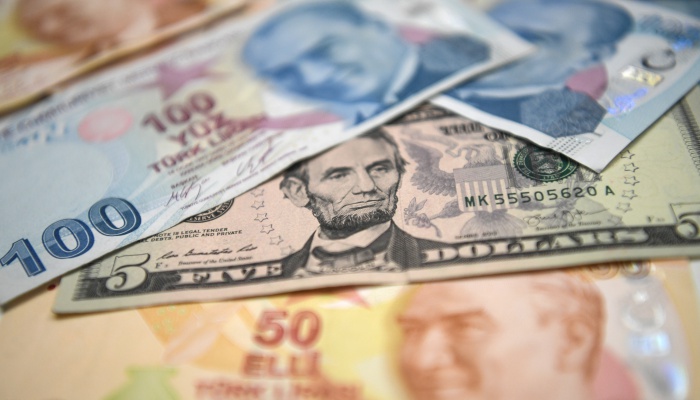Investors and analysts have argued that there is little prospect of a lasting recovery for the lira unless Turkey’s central bank can somehow free itself from President Recep Tayyip Erdoğan’s unorthodox belief that high interest rates cause high inflation, instead of slowing it down, Financial Times reported on Friday.
Turkey’s lira dropped to an all-time low on Friday as investors reacted with bewilderment to the central bank’s move on Thursday to cut its policy rate by 100 basis points to 15 percent, in line with the Turkish president’s call a day earlier and despite the meltdown of the lira, which some analysts say has plunged the country into a “currency crisis.”
The currency, which was recently trading down around 2 percent at TL 11.32 to the dollar, has declined more than 30 percent this year after investors lost faith in the authorities’ ability to manage the economy in the face of inflation that accelerated to almost 20 percent in October, according to FT.
Erdoğan in February replaced a market-friendly central bank governor who raised rates sharply during his four-month time in office with party loyalist Şahap Kavcıoğlu, who has slashed rates from 19 percent since the start of September, despite the runaway price rises.
Ulrich Leuchtmann, Commerzbank’s head of FX research, told FT that it was “probably justified to speak of a crisis” if a currency lost more than one-third of its value on the FX market in less than three months.
The FT also quoted Viktor Szabo, a portfolio manager at Aberdeen Standard Investments, as saying that while interest rates of 15 percent might be ostensibly attractive to return-hungry overseas investors, prospective annual gains could be “wiped out in a few weeks,” given the pace of decline in the lira.
Thursday’s cut, which could be followed by a further reduction in December, is likely to prove “unsustainable,” although it was a result of Erdoğan’s stepping up his campaign for lower borrowing costs in recent months in a bid to bolster growth as he faces a slide in popularity, analysts at Goldman Sachs told FT.
Erdoğan’s ruling Justice and Development Party (AKP), which garnered a nationwide vote of 42.6 percent in the last general election, held in June 2018, has lost over 10 percent of its votes since then, according to the latest public surveys.
“Policy easing is likely to quickly translate into inflation, rather than growth,” they said, adding that negative real interest rates — once inflation is taken into account — increase risks that Turkish households will begin to shift their savings en masse into dollars.
“In the end they will have to hike. Otherwise, you end up in a situation where inflation is so high you will see locals selling the lira, you end up in a vicious cycle of inflation and depreciation,” Timothy Ash of BlueBay Asset Management said.


